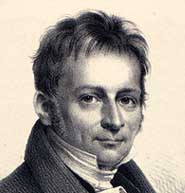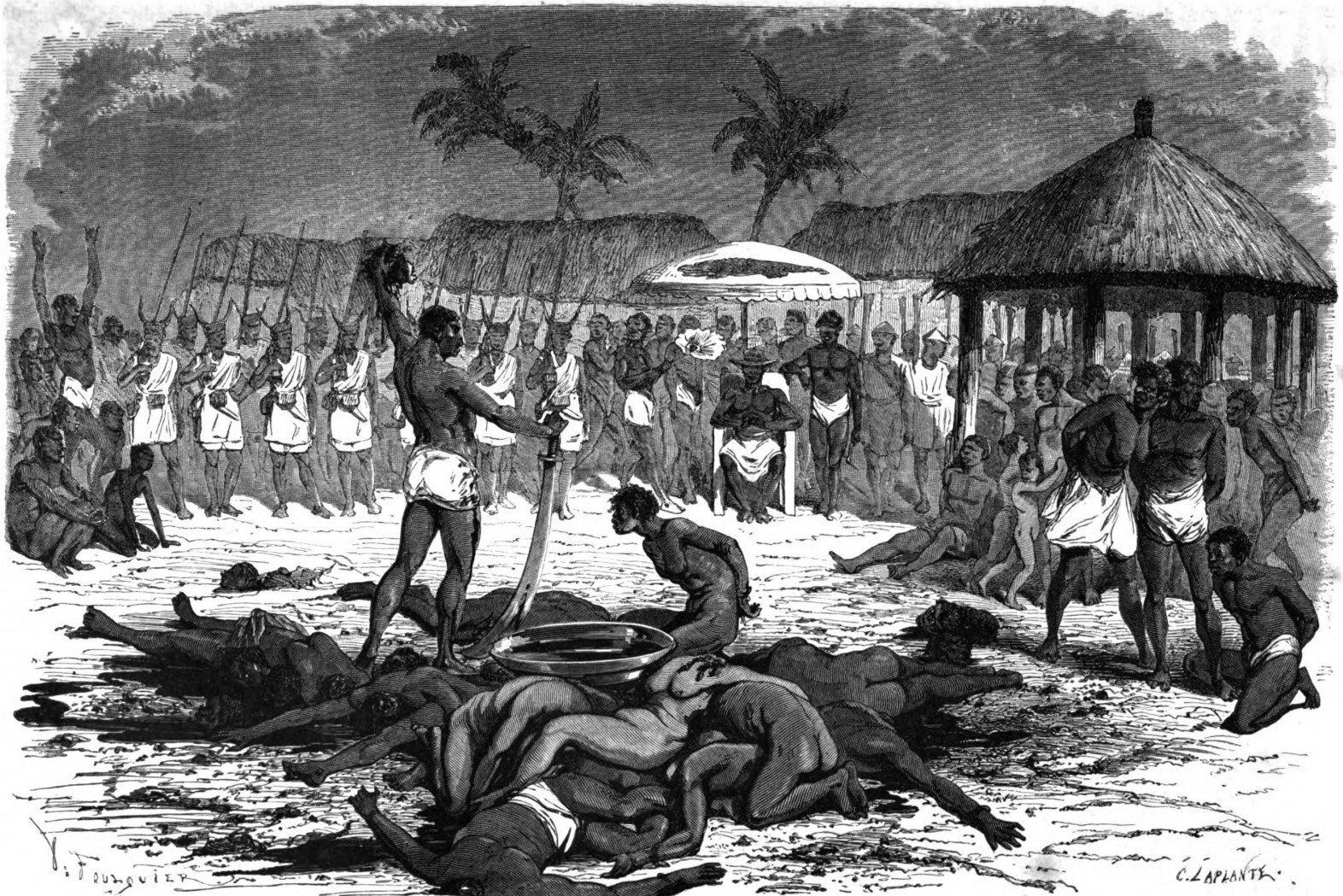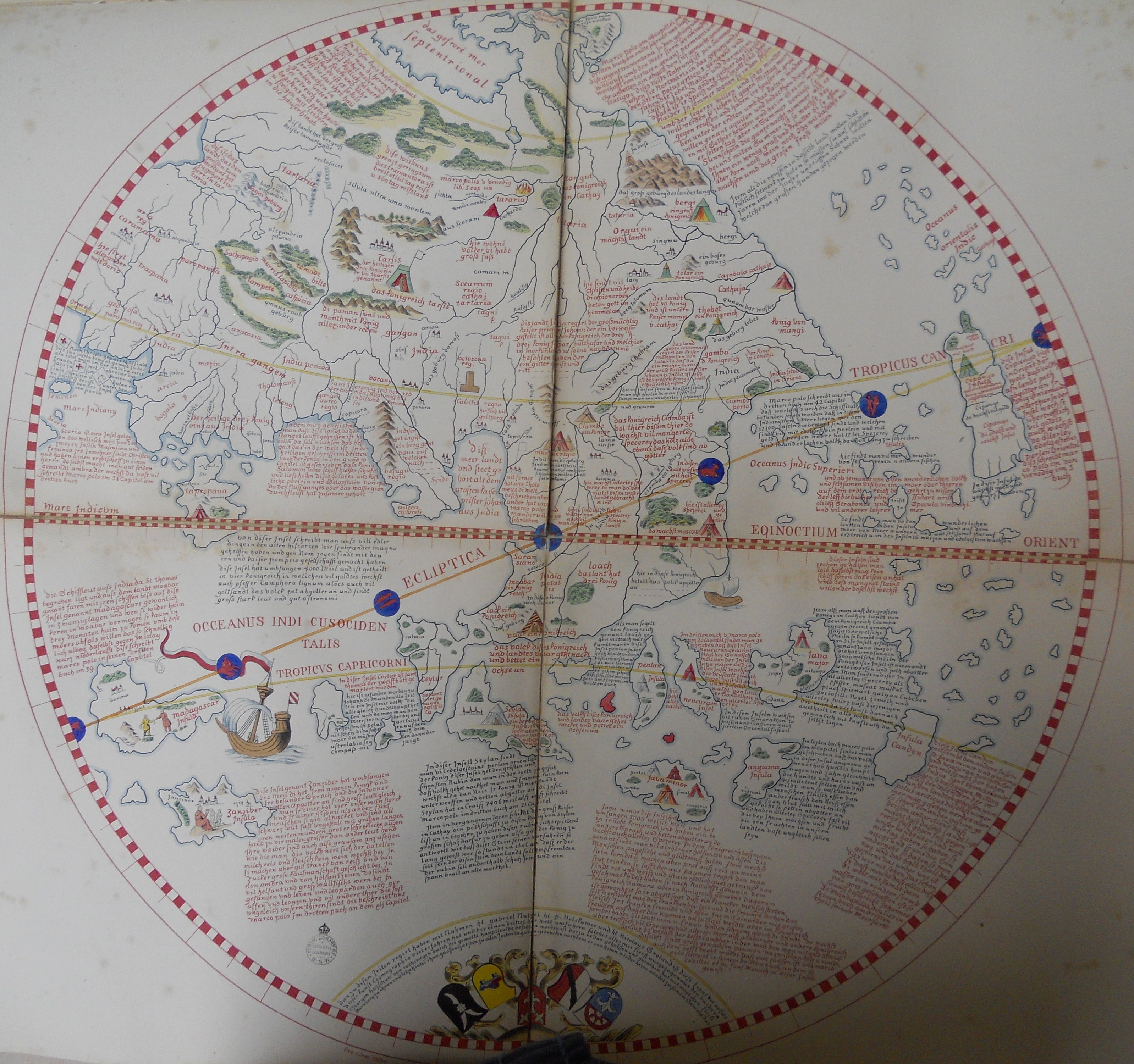|
Friedrich Wilhelm Ghillany
Friedrich Wilhelm Ghillany (18 April 1807 in Erlangen – 26 June 1876) was a German Lutheran theologian, In: (ADB). Band 9, Duncker & Humblot, Leipzig 1879, S. 143 f. historian, librarian and publicist. His rationalist outlook, influenced by , forced him to retire from his post as vicar at St. Aegidius parish in |
Erlangen
Erlangen (; , ) is a Middle Franconian city in Bavaria, Germany. It is the seat of the administrative district Erlangen-Höchstadt (former administrative district Erlangen), and with 119,810 inhabitants (as of 30 September 2024), it is the smallest of the eight major cities () in Bavaria. The number of inhabitants exceeded the threshold of 100,000 in 1974, making Erlangen a major city according to the statistical definition officially used in Germany. Together with Nuremberg, Fürth, and Schwabach, Erlangen forms one of the three metropolises in Bavaria. With the surrounding area, these cities form the Nuremberg Metropolitan Region, European Metropolitan Region of Nuremberg, one of 11 metropolitan areas in Germany. The cities of Nuremberg, Fürth, and Erlangen also form a triangle on a map, which represents the heartland of the Nuremberg conurbation. An element of the city that goes back a long way in history, but is still noticeable, is the settlement of Huguenots after the Revo ... [...More Info...] [...Related Items...] OR: [Wikipedia] [Google] [Baidu] |
Lutheran
Lutheranism is a major branch of Protestantism that emerged under the work of Martin Luther, the 16th-century German friar and Protestant Reformers, reformer whose efforts to reform the theology and practices of the Catholic Church launched the Reformation in 1517. The Lutheran Churches adhere to the Bible and the Ecumenical Creeds, with Lutheran doctrine being explicated in the Book of Concord. Lutherans hold themselves to be in continuity with the apostolic church and affirm the writings of the Church Fathers and the first four ecumenical councils. The schism between Roman Catholicism and Lutheranism, which was formalized in the Diet of Worms, Edict of Worms of 1521, centered around two points: the proper source of s:Augsburg Confession#Article XXVIII: Of Ecclesiastical Power., authority in the church, often called the formal principle of the Reformation, and the doctrine of s:Augsburg Confession#Article IV: Of Justification., justification, the material principle of Luther ... [...More Info...] [...Related Items...] OR: [Wikipedia] [Google] [Baidu] |
Theologian
Theology is the study of religious belief from a religious perspective, with a focus on the nature of divinity. It is taught as an academic discipline, typically in universities and seminaries. It occupies itself with the unique content of analyzing the supernatural, but also deals with religious epistemology, asks and seeks to answer the question of revelation. Revelation pertains to the acceptance of God, gods, or deities, as not only transcendent or above the natural world, but also willing and able to interact with the natural world and to reveal themselves to humankind. Theologians use various forms of analysis and argument ( experiential, philosophical, ethnographic, historical, and others) to help understand, explain, test, critique, defend or promote any myriad of religious topics. As in philosophy of ethics and case law, arguments often assume the existence of previously resolved questions, and develop by making analogies from them to draw new inferences in ... [...More Info...] [...Related Items...] OR: [Wikipedia] [Google] [Baidu] |
Allgemeine Deutsche Biographie
(ADB; ) is one of the most important and comprehensive biographical reference works in the German language. It was published by the Historical Commission of the Bavarian Academy of Sciences between 1875 and 1912 in 56 volumes, printed in Leipzig by Duncker & Humblot. The ADB contains biographies of about 26,500 people who died before 1900 and lived in the German language Sprachraum of their time, including people from the Netherlands before 1648. Its successor, the , was started in 1953 and is planned to be finished in 2023. The index and full-text articles of ADB and NDB are freely available online via the website ''German Biography'' ('' Deutsche Biographie''). Notes References * * External links * ''Allgemeine Deutsche Biographie'' – full-text articles at German Wikisource Wikisource is an online wiki-based digital library of free-content source text, textual sources operated by the Wikimedia Foundation. Wikisource is the name of the project as a whole; it i ... [...More Info...] [...Related Items...] OR: [Wikipedia] [Google] [Baidu] |
Georg Friedrich Daumer
Georg Friedrich Daumer (5 March 1800 – 14 December 1875) was a German poet and philosopher. Life Daumer was educated at the gymnasium of his native city, at that time directed by the famous philosopher Hegel. In 1817 he entered the University of Erlangen as a student of theology, but abandoned that study for philosophy. For a number of years Daumer was professor at the gymnasium of Nuremberg; owing to ill-health he was pensioned in 1832 and henceforth devoted himself entirely to literary work. Daumer was also known as host and teacher of the mysterious foundling Kaspar Hauser in 1828-30 and wrote several books about the case. Philosophy While at Erlangen he came strongly under the influence of Pietism. Soon, however, he became sceptical and exhibited decided leanings towards pantheism. From an orthodox Protestant he gradually became a bitter enemy of Christianity, which he attacked in a number of writings and for which he strove to substitute a new religion "of love ... [...More Info...] [...Related Items...] OR: [Wikipedia] [Google] [Baidu] |
Nuremberg
Nuremberg (, ; ; in the local East Franconian dialect: ''Nämberch'' ) is the Franconia#Towns and cities, largest city in Franconia, the List of cities in Bavaria by population, second-largest city in the States of Germany, German state of Bavaria, and its 544,414 (2023) inhabitants make it the List of cities in Germany by population, 14th-largest city in Germany. Nuremberg sits on the Pegnitz (river), Pegnitz, which carries the name Regnitz from its confluence with the Rednitz in Fürth onwards (), and on the Rhine–Main–Danube Canal, that connects the North Sea to the Black Sea. Lying in the Bavarian Regierungsbezirk, administrative region of Middle Franconia, it is the largest city and unofficial capital of the entire cultural region of Franconia. The city is surrounded on three sides by the , a large forest, and in the north lies (''garlic land''), an extensive vegetable growing area and cultural landscape. The city forms a continuous conurbation with the neighbouring ... [...More Info...] [...Related Items...] OR: [Wikipedia] [Google] [Baidu] |
Old Lutherans
Old Lutherans were German Lutherans in the Kingdom of Prussia, especially in the Province of Silesia, who refused to join the Prussian Union of churches in the 1830s and 1840s. Prussia's king, Frederick William III, was determined to unify the Protestant churches, homogenize their liturgy, organization, and architecture. In a series of proclamations over several years the ''Church of the Prussian Union'' was formed, bringing together a group that was majority Lutheran and minority Reformed. As a result, the government of Prussia had full control over church affairs, with the king recognized as the leading bishop. Attempted suppression of the Old Lutherans led many to emigrate to Australia, Canada, and the United States, resulting in the creation of significant Lutheran denominations in those countries. The legacy of Old Lutherans also survives in the Independent Evangelical Lutheran Church in modern Germany. The Prussian Union In 1799 King Frederick William III of Prus ... [...More Info...] [...Related Items...] OR: [Wikipedia] [Google] [Baidu] |
Munich
Munich is the capital and most populous city of Bavaria, Germany. As of 30 November 2024, its population was 1,604,384, making it the third-largest city in Germany after Berlin and Hamburg. Munich is the largest city in Germany that is not a state of its own. It ranks as the 11th-largest city in the European Union. The metropolitan area has around 3 million inhabitants, and the broader Munich Metropolitan Region is home to about 6.2 million people. It is the List of EU metropolitan regions by GDP#2021 ranking of top four German metropolitan regions, third largest metropolitan region by GDP in the European Union. Munich is located on the river Isar north of the Alps. It is the seat of the Upper Bavaria, Upper Bavarian administrative region. With 4,500 people per km2, Munich is Germany's most densely populated municipality. It is also the second-largest city in the Bavarian language, Bavarian dialect area after Vienna. The first record of Munich dates to 1158. The city ha ... [...More Info...] [...Related Items...] OR: [Wikipedia] [Google] [Baidu] |
Friedrich Von Roth
Friedrich may refer to: Names *Friedrich (given name), people with the given name ''Friedrich'' *Friedrich (surname), people with the surname ''Friedrich'' Other *Friedrich (board game), a board game about Frederick the Great and the Seven Years' War * ''Friedrich'' (novel), a novel about anti-semitism written by Hans Peter Richter *Friedrich Air Conditioning, a company manufacturing air conditioning and purifying products *, a German cargo ship in service 1941-45 See also *Friedrichs (other) *Frederick (other) *Nikolaus Friedreich Nikolaus Friedreich (1 July 1825 in Würzburg – 6 July 1882 in Heidelberg) was a German pathologist and neurologist, and a third generation physician in the Friedreich family. His father was psychiatrist Johann Baptist Friedreich (1796–18 ... {{disambig ja:フリードリヒ ... [...More Info...] [...Related Items...] OR: [Wikipedia] [Google] [Baidu] |
Human Sacrifice
Human sacrifice is the act of killing one or more humans as part of a ritual, which is usually intended to please or appease deity, gods, a human ruler, public or jurisdictional demands for justice by capital punishment, an authoritative/priestly figure, spirits of veneration of the dead, dead ancestors or as a retainer sacrifice, wherein a monarch's servants are killed in order for them to continue to serve their master in the next life. Closely related practices found in some tribe, tribal societies are human cannibalism, cannibalism and headhunting. Human sacrifice is also known as ritual murder. Human sacrifice was practiced in many human societies beginning in prehistoric times. By the Iron Age with the associated developments in religion (the Axial Age), human sacrifice was becoming less common throughout Africa, Europe, and Asia, and came to be looked down upon as barbarian, barbaric during classical antiquity. In the New World, Americas, however, human sacrifice cont ... [...More Info...] [...Related Items...] OR: [Wikipedia] [Google] [Baidu] |
Hebrew Bible
The Hebrew Bible or Tanakh (;"Tanach" . '' Random House Webster's Unabridged Dictionary''. ; ; or ), also known in Hebrew as (; ), is the canonical collection of scriptures, comprising the Torah (the five Books of Moses), the Nevi'im (the Books of the Prophets), and the [...More Info...] [...Related Items...] OR: [Wikipedia] [Google] [Baidu] |
Martin Behaim
Martin Behaim (6 October 1459 – 29 July 1507), also known as and by various forms of , was a German textile merchant and cartographer. He served John II of Portugal as an adviser in matters of navigation and participated in a voyage to West Africa. He is now best known for his Erdapfel, the world's oldest known globe, which he produced for the Imperial City of Nuremberg in 1492. Biography Behaim was born in Nuremberg on 6 October 1459, the oldest son of Martin Behaim and Agnes Schopper. The elder Martin was a merchant involved in long-distance trade within Europe, including Venice; in 1461 he was elected a senator of Nuremberg. Their son, as a member of a prominent and prosperous family, likely received a good education at one of the best grammar schools in the city. Contrary to later assertions, it is unlikely that he was ever a student of the famous Renaissance mathematician and astronomer, Regiomontanus.Görz, 2007Ravenstein, 1908 When his father died in 1474, Martin's ... [...More Info...] [...Related Items...] OR: [Wikipedia] [Google] [Baidu] |





